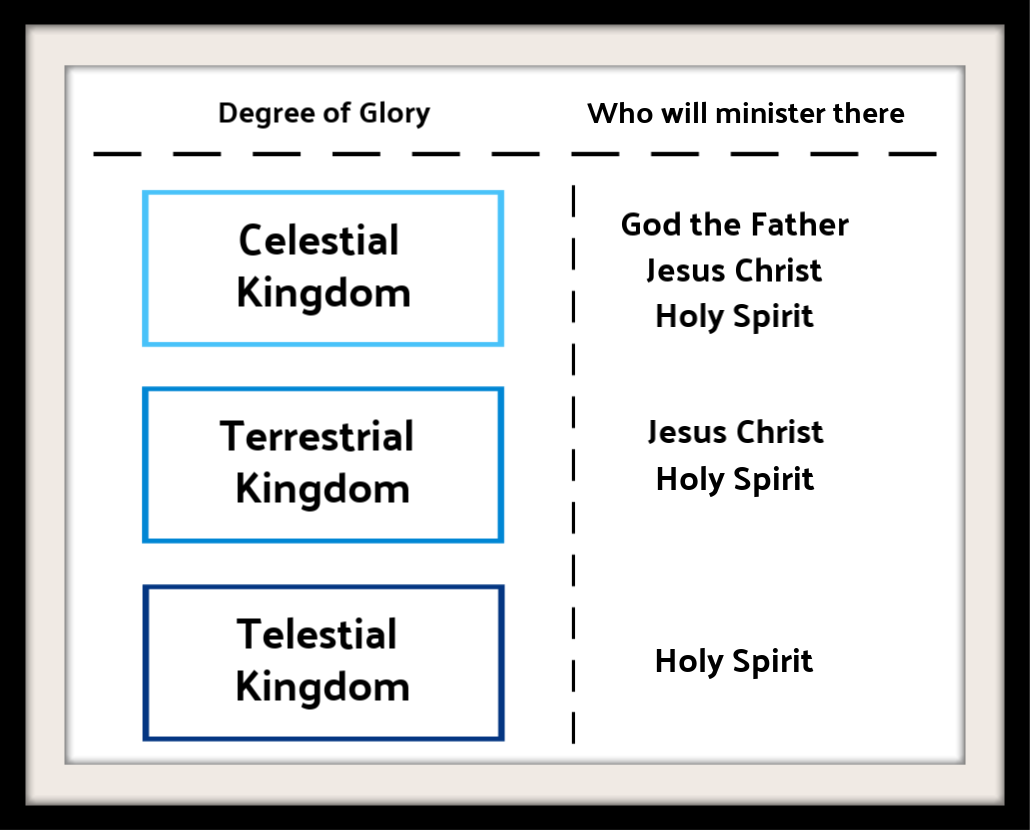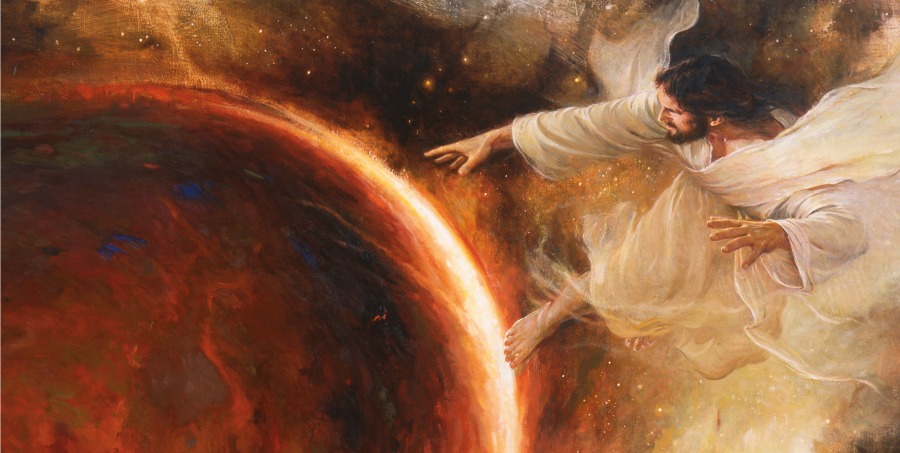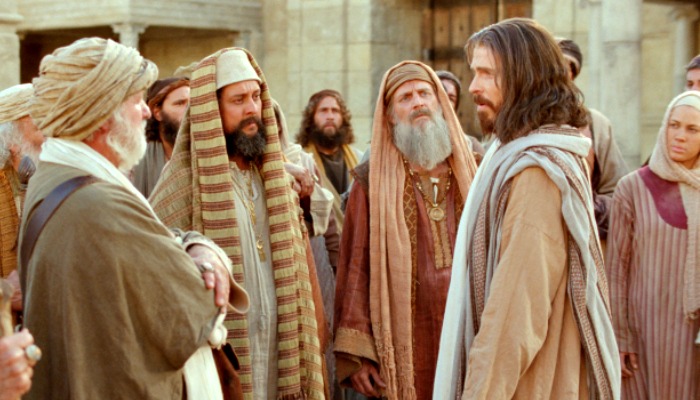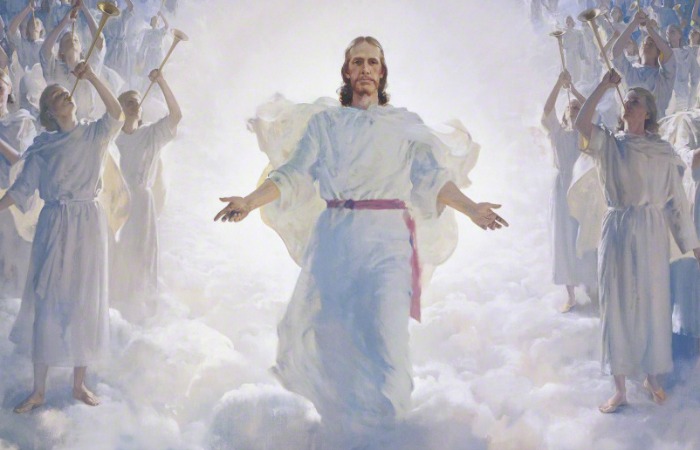
We Latter-day Saints are known for some pretty unorthodox beliefs, but our teachings about Heaven, while different, are absolutely beautiful, comforting, merciful, inspiring, motivating, ethical, and logical all at the same time. For those that aren’t familiar with our doctrines about Heaven, here’s a brief review and some thoughts on why this teaching is so awesome:
Telestial, Terrestrial, Celestial
Latter-day Saints believe there are three degrees or “kingdoms” of Heaven. God the Father lives in the highest degree of Heaven, called the Celestial Kingdom. The people that inherit the Celestial Kingdom after the Resurrection and Final Judgment are those who accept Jesus Christ, repent of their sins, strive to keep the commandments, and receive certain ordinances by proper authority, such as baptism. The people that will live here are people who desire to live here. They want to become “joint-heirs with Christ” (Romans 8:17) and dedicate themselves to becoming more like Him during their mortal lives.
The next kingdom down is called the Terrestrial Kingdom. Those that go here are good people, but people “who were blinded by the craftiness of men” (D&C 76:75) and who were “not valiant in the testimony of Jesus” (D&C 76:79). While Christ may not live in this kingdom, we believe he will still visit and minister to these people from time to time.

The last kingdom is called the Telestial Kingdom. This is where the worst that humanity had to offer will go. It’ll be the inheritance of those that neither accepted Christ as their Savior nor lived righteously. But even here the people will obtain a certain level of happiness. In fact, Joseph Smith saw a vision of this kingdom and said that its glory “surpasses all understanding.” Neither God the Father nor Jesus Christ will minister to them, but the Holy Ghost will visit from time to time.
We believe that virtually everyone, no matter your religion, will end up somewhere in Heaven. Here’s why that’s so incredible:
1. It Gives God the Victory

There are more than 7.5 billion people on this planet. A little over 30 percent of those people identify as Christian. Baptists, Lutherans, Catholics, etc. They’re our neighbors and our friends. We‘re their neighbors and their friends. And most Christians believe in a merciful, loving God. But most Christians also believe anyone that doesn’t accept Jesus Christ as their Savior is destined to suffer in Hell for all eternity.
If that is true, then, at the very least, about 70 percent of the inhabitants of this planet are in trouble, not to mention factoring in the billions and billions of non-Christians from previous eras.
I’m not trying to rag on our Christian friends or their beliefs. They’re good people doing their best to make sense out of this life, as are we. But I personally find it very troubling to believe in a loving God whose best option was to enact a plan that He knew would have a <30 percent success rate. That’s a failing grade, an F, by our standards (granted, it’s probably futile to judge God by our standards). But there are no re-takes for that 70 percent. It’s Hell, for eternity.
The Latter-day Saint doctrine, on the other hand, portrays a victorious God. When it comes to salvation from physical/spiritual death and an eternal hell, there’s a near one hundred percent success rate.
2. It Balances Universalism with Exclusivism

Christian universalists believe that everyone, regardless of religious affiliation or obedience to God’s commandments, will go to Heaven. Christian exclusivists, on the other hand, believe that only one religion is true and only those who belong to that religion will be saved.
Universalists believe that the exclusivist God is not a loving God, because He condemns all but a few of His children to Hell (we touched on that issue in the previous section). Exclusivists believe that the universalist God is way too merciful, and that universalism absolves us of any obligation to keep God’s commandments.
Both ideologies outline significant problems with each other. The Latter-day Saint stance resolves those problems and strikes a beautiful balance between the two. We believe that most everyone, regardless of religion or behavior, will be saved. But we do not believe everyone will be saved to the same place.
Due to the three-tiered nature of Heaven, we believe the wicked will be farther from God and will not be able to enjoy living in His presence. The degree of truth you adhere to effects where you’re saved to.
So if people in the Telestial Kingdom are separated from God, doesn’t that just make it Hell by another name?
Surely those that qualify for this kingdom will be tormented by the knowledge that they could have enjoyed a higher kingdom, but it is very different than the “Hell” we’re used to reading about. Those in lower kingdoms may not live with Heavenly Father, but they’ll still be ministered to by Jesus Christ or the Holy Ghost, depending on their kingdom of glory (as per the diagram above). Therefore, those in lower kingdoms will still achieve some degree of very real happiness while still experiencing very real penalties for their choices in life.
3. It Acknowledges Both Grace and Works
Salvation through grace or works has been hotly debated for centuries. The three-tiered Heaven leaves room for both principles to operate.
Salvation from an eternal Hell indeed comes through grace alone. Without God’s grace, there would be nothing we could possibly do to save ourselves from eternal separation from God. Even after “all we can do,” each of us must still recognize that “it is by grace that we are saved” (2 Nephi 25:23).
So, where does our obedience and righteousness come into play?
The Church’s website is pretty clear,
After we are resurrected, we will stand before the Lord to be judged according to our desires and actions. Each of us will accordingly receive an eternal dwelling place in a specific kingdom of glory.
… The glory we inherit will depend on the depth of our conversion, expressed by our obedience to the Lord’s commandments. It will depend on the manner in which we have ‘received the testimony of Jesus’ (D&C 76:51; see also D&C 76:74, 79, 101).
It is God’s grace that allows us access into any Kingdom of Glory. That said, it is our responsibility to live in such a way that we qualify to receive that gift. Again, our obedience and righteousness do not save us, but they do influence which kingdom we are saved to.
God’s grace is totally operable in Latter-day Saint theology, but at the same time, it does not absolve any of us of our personal responsibility to obey God’s commandments. It strikes a beautiful balance.
This stuff matters
Side-note: I’ve talked a lot about Heaven in this article, but Latter-day Saints also believe that if sins go un-repented for, they’ll have to be paid for before inheriting a Kingdom of Glory. To learn more about what we believe Hell is, check out the resources at the bottom of this article.
When it comes to religion, I have a lot of questions, even about my own faith. Some of those questions carry more weight than others. These Latter-day Saint doctrines about Heaven answer otherwise crushing questions. They teach of a God who cares about all of His children, a nuanced God who has more than two extreme and eternal options on the table for us, a merciful God who blesses us more than we’ll ever deserve, but who also pushes us to act for ourselves on our quest to become more like Him. That’s not only the God I believe in, but He’s the only God I can and want to believe in.
I invite anyone not of our faith to discover for yourself through study and prayer if these teachings truly describe our Heavenly Father.








